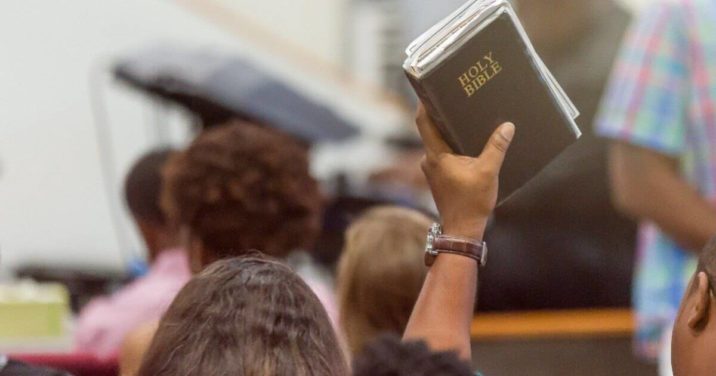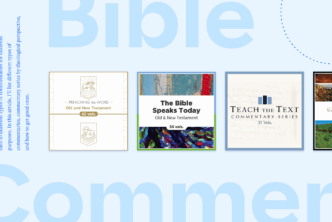When we look back on Church history, we see lots of familiar names and stories, like the revolutionary time Martin Luther read Romans or Jonathan Edwards preached his most famous sermon. So many stories like these have been passed down for generations, but they don’t tell the full story of the Church.
For centuries the contributions of African American Christians and the Black Church were minimized or even ignored altogether because of racism. Yet some excellent, kingdom-focused work survived history—and it has a lot to teach us about faithfulness to God despite oppression and exclusion.
As an example, did you know that the first American missionary was an African American man named George Liele, who took the gospel to the Caribbean? Or did you know the African Methodist Episcopal denomination was founded by two men who were thrown out of a prayer meeting because they prayed in the Whites-only section?
Yes, the history is devastating and grievous—but it is also rich with African American men and women who took the Bible seriously and inspired generations of Christians to do the same.
If you’d like to learn more about the Black Church and the necessity of diversity in the body of Christ, here are three works that have been immensely helpful to me.
History and Theology of the African American Church by Carl F. Ellis Jr.
As I researched for this article, I read through the transcript for this excellent course by Dr. Ellis. Seeing the Black Church’s history laid out so clearly was moving and heartbreaking, and it helped me understand more of the concerns I hear from African American Christians.
The course opens by looking at Africans in the Bible and the early Church and moves to showing how the Black Church developed and grew despite oppression. It gives an overview of not only the history and theology of the African American Church, but it also reveals some of its most important contributions and distinctives.
If you want a primer on African American theology and history, I recommend starting here.
Reading While Black: African American Biblical Interpretation as an Exercise in Hope by Esau McCaulley
This book won lots of awards last year (including this one from Christianity Today), and for good reason—it illuminates how African Americans have generally interpreted Scripture over centuries. I binge-read this last year in a single day (it was the audiobook, if that counts), and I hope to reread it this year to glean even more—it’s that good.
What made this book helpful was the glimpse it gave me into how African Americans tend to read the Bible differently while still being faithful to the text. It’s not an either/or—read the Bible like me or you’re reading it wrong—it’s a both/and. The same passage can bring comfort to one person and conviction to another, and both are a work of the Spirit.
It’s similar to the analogy of seeing how a diamond refracts light differently based on the angle at which you hold it. When we see the beauty in a diversity of viewpoints, we can gain a fuller view of the power and authority of God’s Word.
United: Captured by God’s Vision for Diversity by Trillia J. Newbell
If you’re not convinced about the need for Black History Month or why Christians should care more than anyone, I challenge you to read this book. It’s short, concise, and filled with Scripture.
I read the book after its release in 2014, and it set me on a journey to understanding and appreciating the beauty of diversity and difference in the Church.
“The pursuit of diversity is important, yes, but not because it’s trendy, this generation’s ‘hip thing.’ It’s important because the nations fill God’s world. Seeing the importance of diversity in Scripture should make us want to explore how we can emulate this today. Ultimately it’s all about his glory on this earth and reflecting him to a broken world.” (127)
—Trillia Newbell
Newbell weaves parts of her story through the book, which helped me recognize the ways my own blindness affected real people—real Christians who I will spend eternity with, and people who have questions about Jesus. The ultimate reality she points to in the book (Rev 7:9–10 is a huge piece of it) motivates me to see the pain of those who have been ignored or faced injustice because of racism in God’s house.
Learn more about the Black church in the following works:
- Say It: Celebrating Expository Preaching in the African American Tradition edited by Eric C. Redmond
- Reviving the Black Church: A Call to Reclaim a Sacred Institution by Thabiti Anyabwile
- Free at Last? The Gospel in the African American Experience by Carl F. Ellis Jr.
- One Blood: Parting Words to the Church on Race and Love by John M. Perkins
- Biblical Principles for Diversity and Reconciliation in Ministry by Walter R. Strickland III






